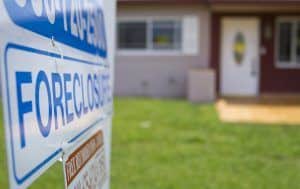
Once an investor determines what liens are attached, they can calculate the approximate costs of those liens. Armed with this information, the investor can apply that to the current market value and factor-in other relevant figures including repair costs, prevailing rental rates, property taxes (which will increase following a sale by a primary homeowner being taxed at the homestead exemption rate), insurance premiums and other relevant numbers. This number-crunching will help the investor determine the market value and equity to make an offer.
It’s common for properties to have multiple liens. When that is the case, the general rule with very limited exceptions is that the first lien recorded in the public records has priority. When the lien is a mortgage, it’s extremely likely to be the first recorded lien. This is because lenders get title insurance policies to protect their position and they won’t issue the loan unless they’re certain there are no other liens. The main exception is a second mortgage or equity line following the first mortgage. Many liens can fall on a property later, but they will stand in line behind the mortgage.
A first mortgage will also stand ahead of home owner association (HOA) liens, but complications arise when the winning bidder at a foreclosure court sale is a third-party buyer instead of the foreclosing lender. When a foreclosure by a mortgage lender or other lienholder goes to a court auction, the most likely winning bidder is that lender. This is because the lender (known as the “plaintiff” in the case) receives a credit for the amount of the judgment the court awards, which is usually the outstanding debt owed with attorney’s fees and other costs added-on. As such, unless the value of the property exceeds the judgment amount, there’s no incentive for a third-party to outbid the plaintiff with its judgment amount credit.
When the property has equity, however, an investor may win the auction by bidding above the judgment amount and out-bidding the plaintiff. If there is an outstanding HOA debt, that new owner becomes jointly-liable with the prior owner for that lien. This is a common unpleasant surprise for inexperienced investors who take title through the court sale. As fate would have it, as I’m writing this article, a client who bought a home through a lender foreclosure auction just called to tell me he received an HOA bill for $1,700 for dues incurred by the prior owner the year before the foreclosure. I had to break the news to him of what I wrote above.
The first mortgage lender gets the benefit of “safe harbor” protection under Florida Statutes in relation to their rights against the HOA. What this means is, if the first-party foreclosing lender is the winning court sale bidder, its liability for outstanding HOA debt is capped. Other winning bidders get no such benefit and the HOA is free to pursue the entire debt against them. The safe harbor limitation for the lender is that it is liable for the lesser of one percent of the outstanding mortgage balance or one percent of the preceding year’s HOA dues.
Because foreclosures present good purchase opportunities for investors seeking distressed properties and motivated sellers, it’s important for investors to understand basic concepts in the foreclosure process. All foreclosures are actions are filed upon some kind of lien. By far, the most common type is a lender’s mortgage foreclosure.
Be sure to follow us to read our final blog in our understanding liens series which will cover the foreclosure aspects of a property and what investors need to know. If you have questions about real estate and liens, contact attorney Charles Castellon.

